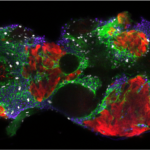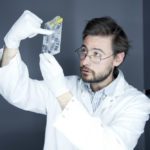Please pay attention : Date and Time changed, now it is
Thursday 11th February — at 1.00 pm — Amphi Monod (Bât.66)
Invited Speaker : Wolf Reik
From Babraham institute – Cambridge, UK
Hosted by Pablo Navarro
Abstract : Epigenetic information is relatively stable in somatic cells but is reprogrammed on a genome wide level in germ cells and early embryos. Epigenetic reprogramming appears to be conserved in mammals including humans. This reprogramming is essential for imprinting, and important for the return to pluripotency including the generation of iPS cells, the erasure of epimutations, and perhaps for the control of transposons in the genome. Following reprogramming, epigenetic marking occurs during lineage commitment in the embryo in order to ensure the stability of the differentiated state in adult tissues. Signalling and cell interactions that occur during these sensitive periods in development may have an impact on the epigenome with potentially long lasting effects.
A key component of reprogramming is the erasure of DNA methylation which probably involves an intricate combination of passive (DNA replication without maintaining methylation) and active mechanisms. We have identified signalling events which regulate DNA methylation dynamics during early development, and which connect reprogramming firmly with naïve pluripotency. This is probably important in order to disable epigenetic memory in pluripotent cells. Altered reprogramming may also result in transgenerational epigenetic inheritance. A recently developed method for single cell whole genome bisulfite sequencing (scBS-seq) reveals extensive heterogeneity of DNA methylation especially in enhancers at the exit of pluripotency. It is possible that such epigenetic heterogeneity could help with key cell fate decisions during gastrulation.

